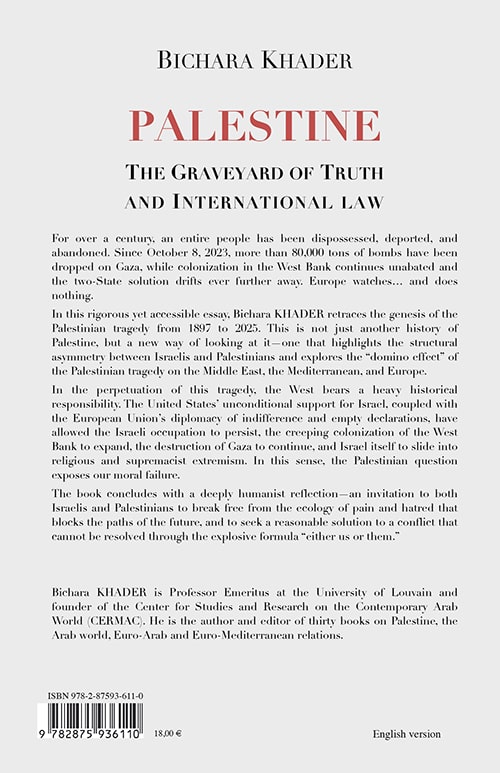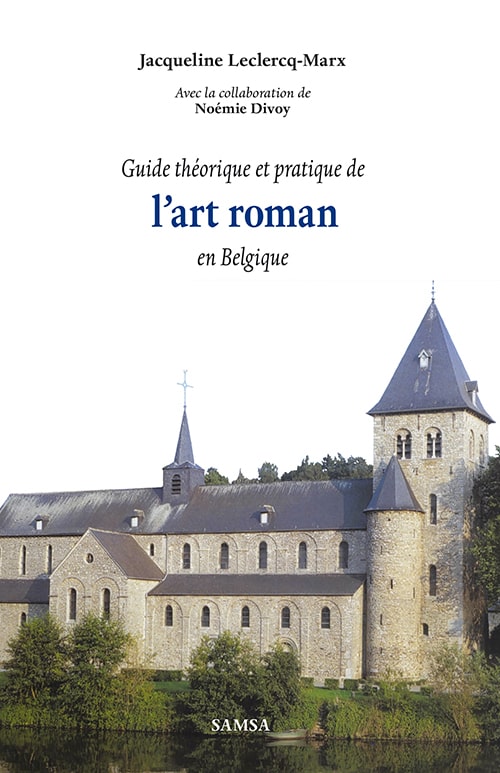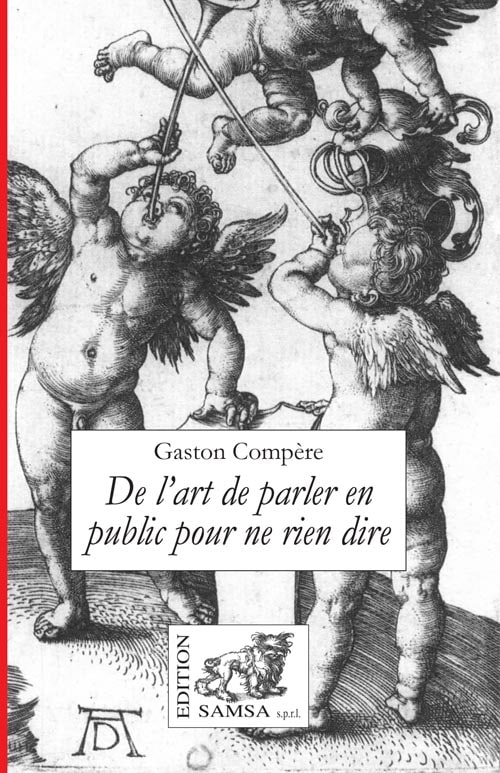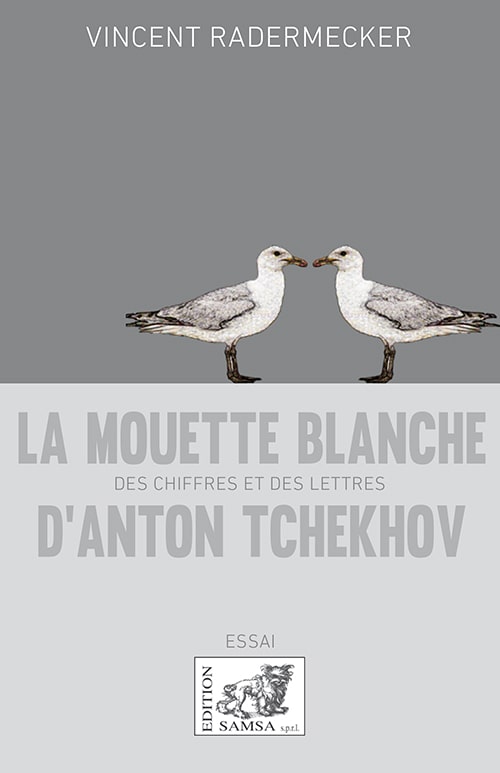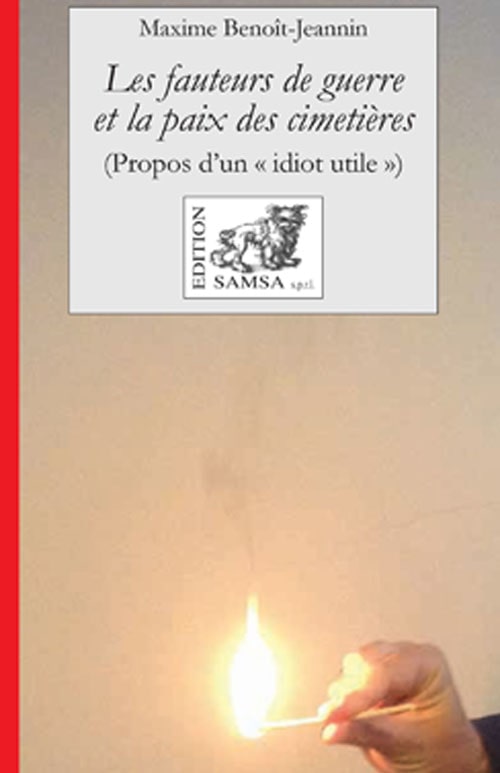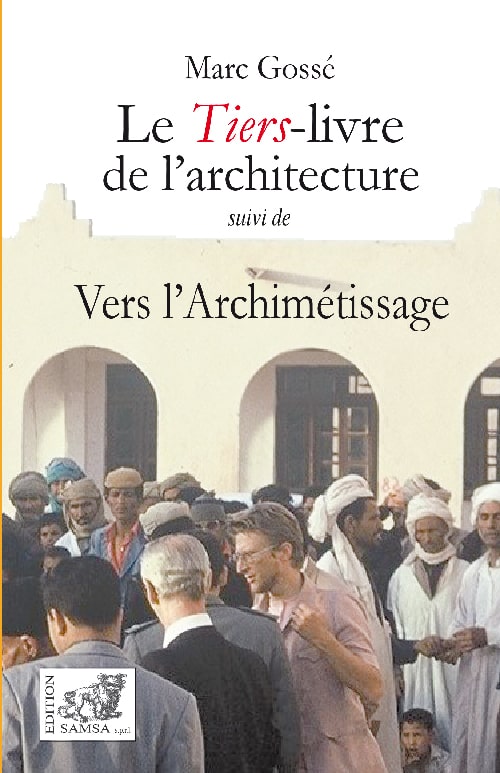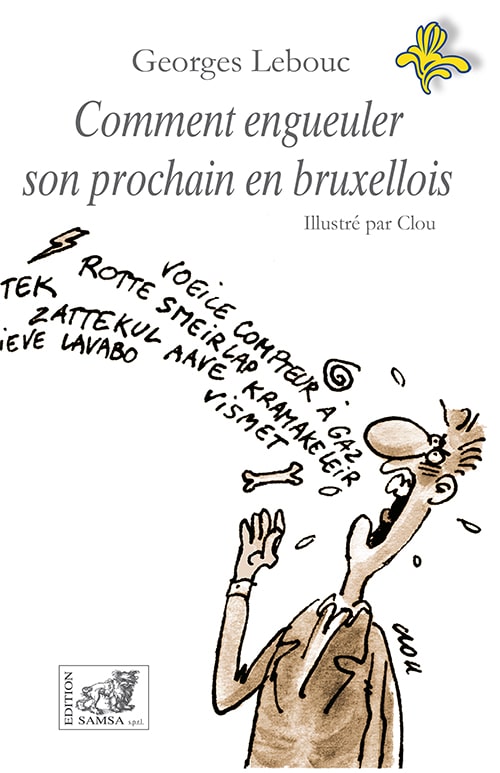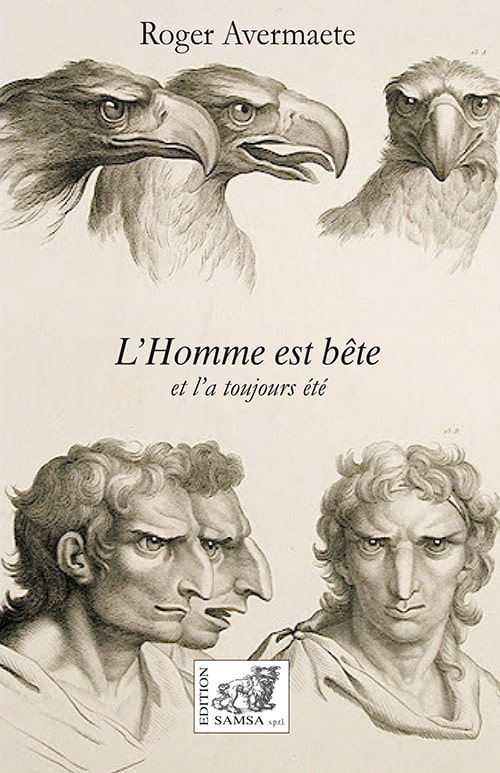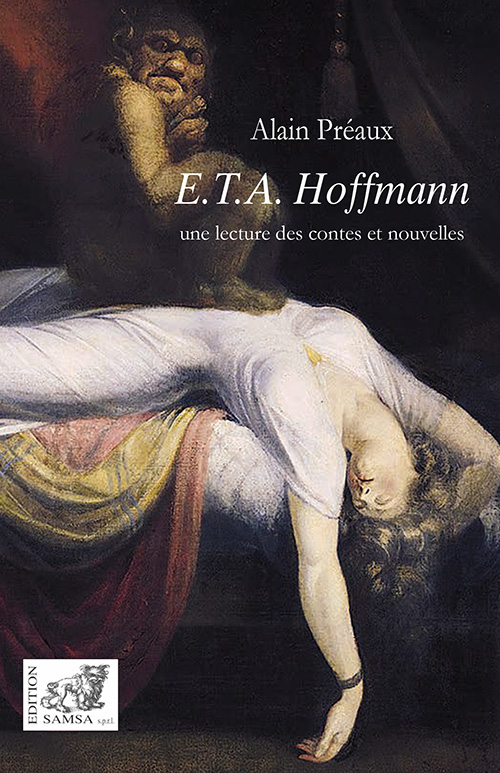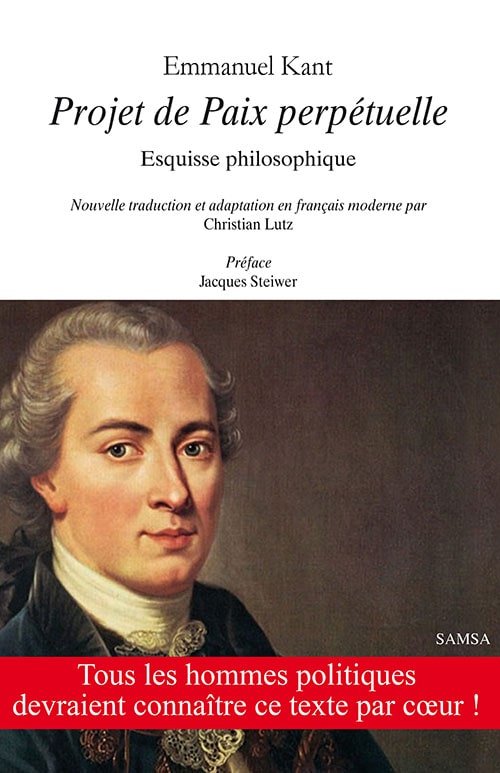Palestine GB - The graveyard of truth and international law

In this rigorous yet accessible essay, Bichara KHADER retraces the genesis of the Palestinian tragedy from 1897 to 2025. This is not just another history of Palestine, but a new way of looking at it—one that highlights the structural asymmetry between Israelis and Palestinians and explores the “domino effect” of the Palestinian tragedy on the Middle East, the Mediterranean, and Europe.
In the perpetuation of this tragedy, the West bears a heavy historical responsibility. The United States’ unconditional support for Israel, coupled with the European Union’s diplomacy of indifference and empty declarations, have allowed the Israeli occupation to persist, the creeping colonization of the West Bank to expand, the destruction of Gaza to continue, and Israel itself to slide into religious and supremacist extremism. In this sense, the Palestinian question exposes our moral failure.
Disponibilité: En stock
For over a century, an entire people has been dispossessed, deported, and abandoned. Since October 8, 2023, more than 80,000 tons of bombs have been dropped on Gaza, while colonization in the West Bank continues unabated and the two-State solution drifts ever further away. Europe watches… and does nothing.
In this rigorous yet accessible essay, Bichara KHADER retraces the genesis of the Palestinian tragedy from 1897 to 2025. This is not just another history of Palestine, but a new way of looking at it—one that highlights the structural asymmetry between Israelis and Palestinians and explores the “domino effect” of the Palestinian tragedy on the Middle East, the Mediterranean, and Europe.
In the perpetuation of this tragedy, the West bears a heavy historical responsibility. The United States’ unconditional support for Israel, coupled with the European Union’s diplomacy of indifference and empty declarations, have allowed the Israeli occupation to persist, the creeping colonization of the West Bank to expand, the destruction of Gaza to continue, and Israel itself to slide into religious and supremacist extremism. In this sense, the Palestinian question exposes our moral failure.
The book concludes with a deeply humanist reflection—an invitation to both Israelis and Palestinians to break free from the ecology of pain and hatred that blocks the paths of the future, and to seek a reasonable solution to a conflict that cannot be resolved through the explosive formula “either us or them.”
Palestine GB - The graveyard of truth and international law
- 188 pages
- Dimensions : 140x205 mm mm
- Type : livre
- Couverture : softcover
- Poids : 350 gr
- ISBN : 978-2-87593-611-0
- Maison d'édition : SAMSA Editions
Bichara Khader GB
Bichara Khader is Professor Emeritus at the University of Louvain and founder of the Center for Studies and Research on the Contemporary Arab World (CERMAC). He is the author and editor of thirty books on Palestine, the Arab world, Euro-Arab and Euro-Mediterranean relations.
En savoir plusDernières parutions
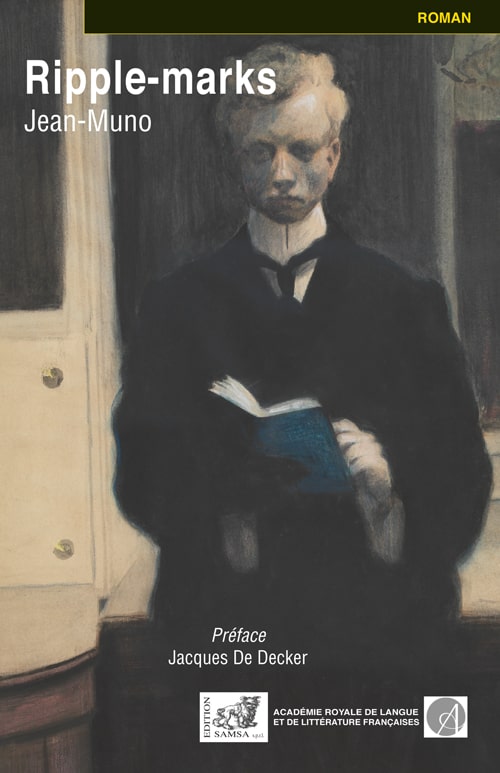
Ripple-marks (1976) est peut-être le plus grave des livres de Muno.
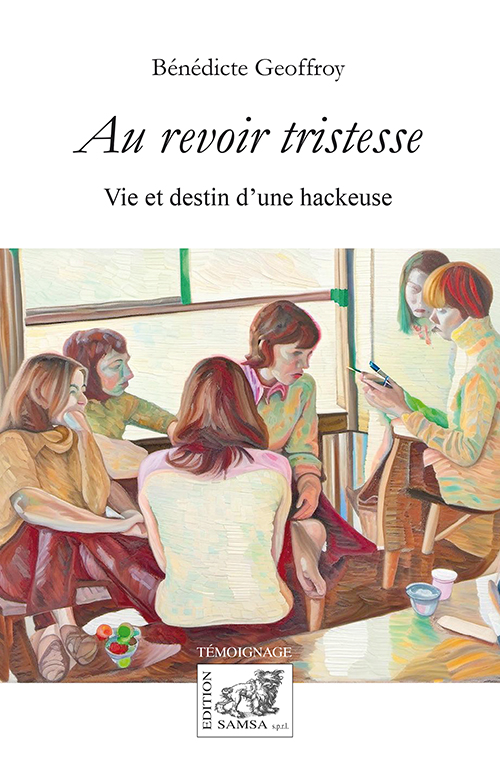
La Hackeuse finira par se faire prendre par la gendarmerie française à l’issue d’une course poursuite… Mais qui aura le dernier mot sur ce parcours et ce destin incroyables ? La Justice ? La Prison ? La famille ? L’argent ?
Tout le monde devrait lire Bénédicte Geoffroy, elle souffle un vent dynamique de courage et d’imagination qui nous aident à affronter une réalité qui, de nos jours, devient de plus en plus contraignante.

